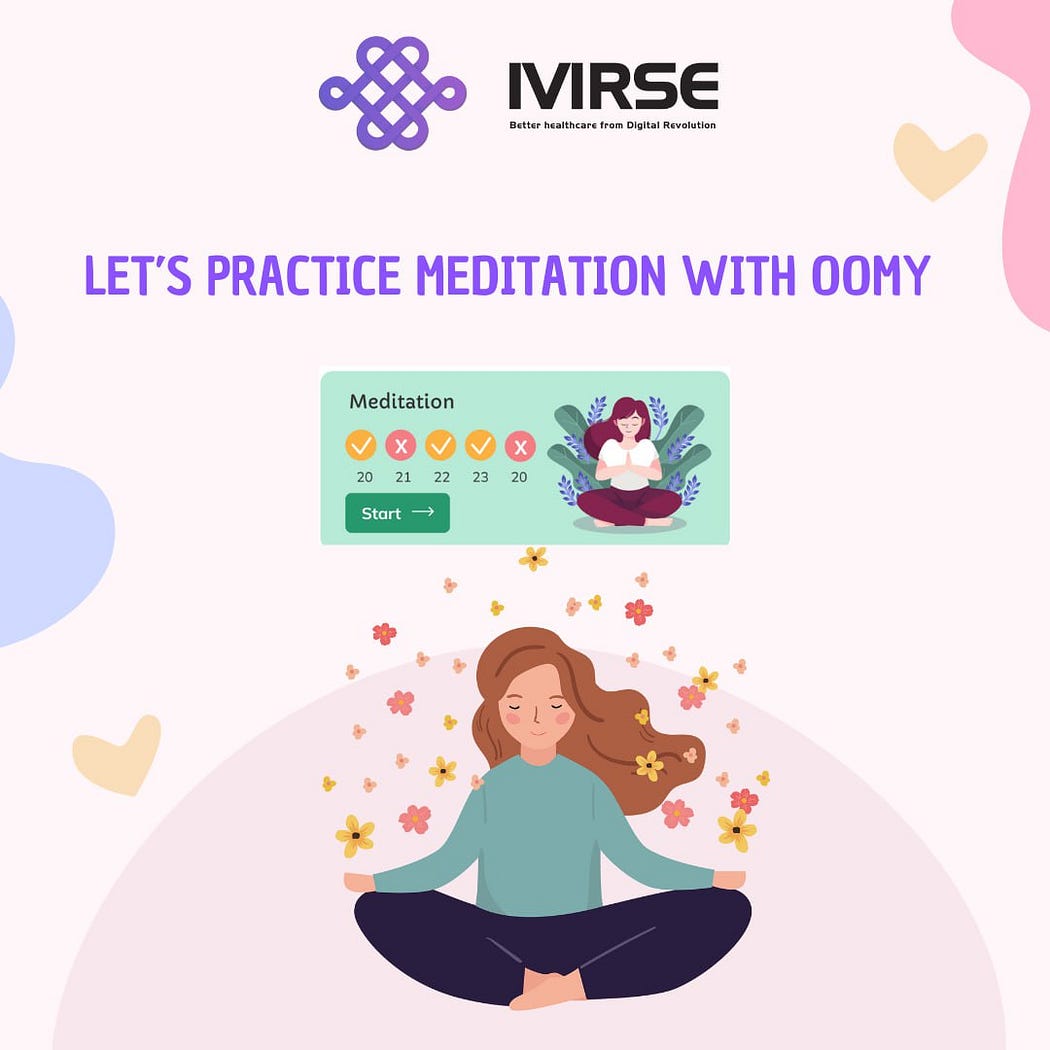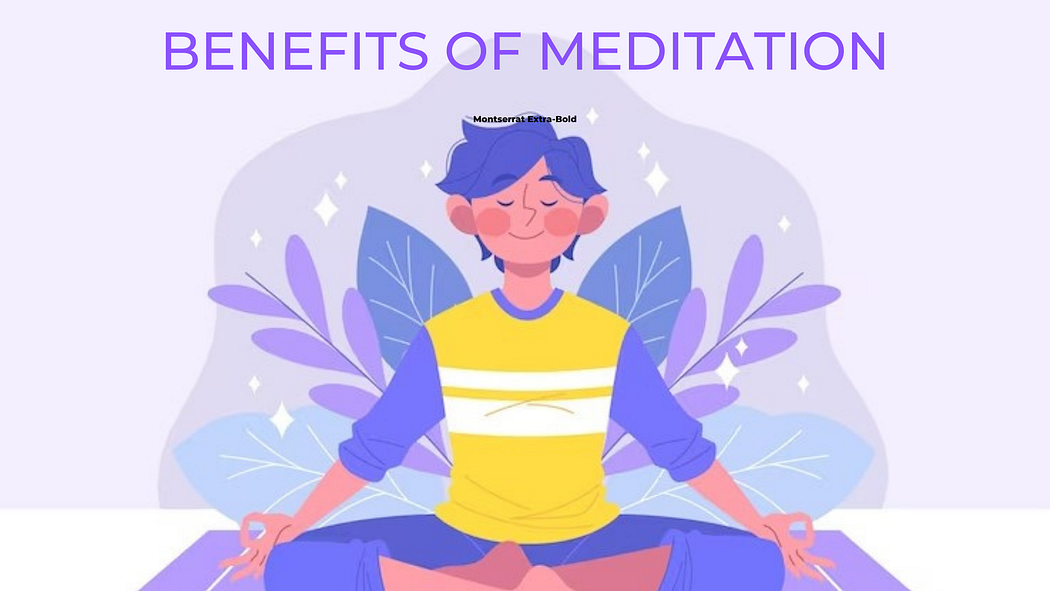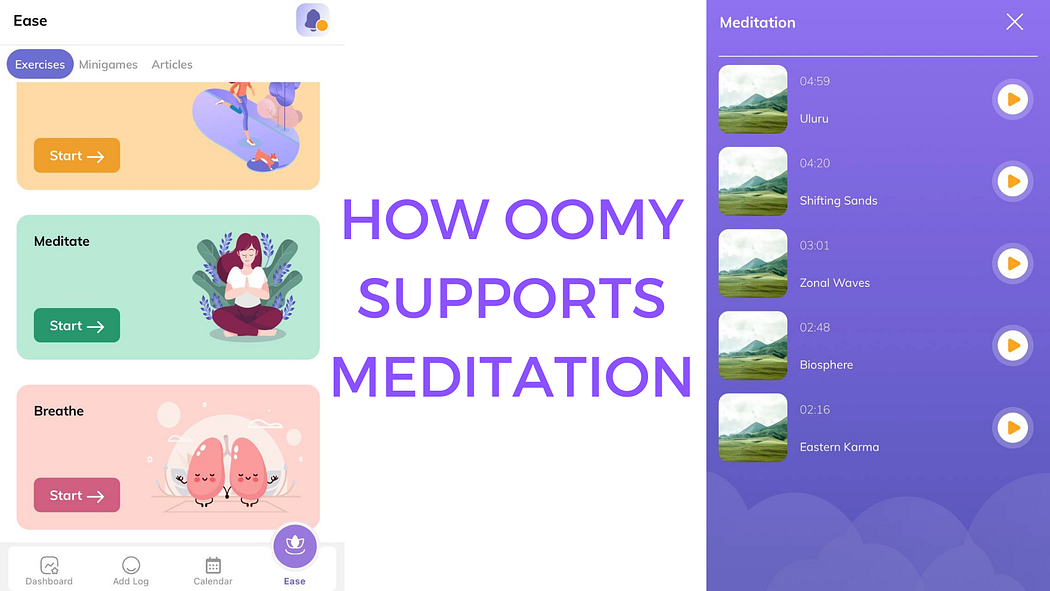Meditating to better mental health with OOMY
Discover how Oomy, a decentralized mental health app created by IVIRSE, uses guided meditation to improve mental health. Learn about the benefits of meditation and how Oomy’s unique approach can help you achieve a better state of mind.

Image credit: freepik.com
Introduction
Mental health is an essential part of overall well-being. It refers to our emotional, psychological, and social well-being and affects how we think, feel, and act (Walsh, 2011). Mental health impacts our ability to handle stress, make decisions, build relationships, and cope with the challenges of daily life. Good mental health allows us to enjoy life, feel fulfilled, and achieve our full potential. On the other hand, poor mental health can lead to a range of mental illnesses, including depression, anxiety, bipolar disorder, and others. These conditions can have a significant impact on our lives and make it challenging to function in our daily activities. Therefore, taking care of our mental health is crucial for our overall health and well-being.

Oomy is a decentralized mobile application designed to help users improve their mental health through a lot of activities including meditation. The app offers guided meditations that are tailored to the individual’s needs and preferences. By using the app regularly, users can reduce stress and anxiety, improve focus and concentration, and increase their overall sense of well-being. Oomy also offers a reward system that encourages users to meditate regularly and engage in other positive behaviors that contribute to better mental health. The app’s meditation feature makes it a powerful tool for anyone looking to improve their mental health.
Benefits of Meditation

Meditation has been practiced for centuries and is becoming increasingly popular as a tool for improving mental health. Studies have shown that regular meditation can reduce symptoms of anxiety, depression, and stress (Monk-Turner, 2003). Meditation can also improve focus and attention, increase self-awareness, and enhance overall feelings of well-being. By training the mind to focus on the present moment, meditation can help individuals become more aware of negative thought patterns and develop healthier coping mechanisms. Regular meditation practice can lead to improved emotional regulation, greater resilience to stress, and a more positive outlook on life.
Numerous scientific studies have shown that meditation can have positive effects on mental health. For example, a study published in JAMA Internal Medicine (2014) found that meditation can be as effective as antidepressant medication in treating symptoms of depression and anxiety. Another study published in the Journal of Psychiatric Practice found that meditation can be an effective treatment for post-traumatic stress disorder (PTSD).
Other studies have found that meditation can reduce symptoms of anxiety and stress, improve sleep, and enhance overall well-being (Davidson & McEwen, 2012). A review of 47 studies published in JAMA Internal Medicine found that meditation can be effective in reducing symptoms of anxiety, depression, and pain.
Overall, much scientific research supports the effectiveness of meditation as a tool for improving mental health. By incorporating meditation into their daily routine, individuals can benefit from its positive effects on their mental well-being.
How Oomy Supports Meditation?
Overview of Oomy’s meditation features
Oomy helps users practice meditation and improve their mental health through a selection of calming music tracks specifically designed to enhance the meditation experience. Users can choose from a range of music styles, including nature sounds, classical music, and ambient sounds… to suit their needs.
The meditation feature is designed to help users improve their mental health and can cover a range of topics, such as stress relief, anxiety reduction, and mindfulness. This feature can be used to suit the user’s preferences, with options for different lengths of meditation.
Oomy’s meditation features provide users with a comprehensive set of tools to help them improve their mental health and well-being through the practice of meditation.

How the app helps users track and improve their meditation practice?
Oomy provides various features to help users track and improve their meditation practice. One such feature is the ability to track the duration or frequency of meditation sessions. The app also tracks the user’s progress towards their goals and provides reminders to encourage consistent practice. This feature makes it easier for users to incorporate meditation into their daily routines and improve their mental health over time.
When users log their daily emotions, Oomy will recommend some activities including meditation to improve their mood. Oomy also rewards users each time they finish a meditation session.
Conclusion
In conclusion, mental health is crucial to our overall well-being, and meditation can be a powerful tool to improve it. Oomy is an excellent app that provides users with a meditation feature to help them develop a regular meditation practice. From music for meditation to daily tracking and progress monitoring, the app provides users with the necessary tools to improve their mental health through meditation. Scientific research has also supported the effectiveness of meditation, showing that it can help reduce stress, anxiety, and depression, and improve overall mental well-being. By incorporating meditation into their daily routine with the help of Oomy, users can take an active role in improving their mental health and leading a more fulfilling life.
References
Monk-Turner, E. (2003). The benefits of meditation: experimental findings. The social science journal, 40(3), 465–470.
Walsh, R. (2011). Lifestyle and mental health. American Psychologist, 66(7), 579.
Goyal, M., Singh, S., Sibinga, E. M., Gould, N. F., Rowland-Seymour, A., Sharma, R., … & Haythornthwaite, J. A. (2014). Meditation programs for psychological stress and well-being: a systematic review and meta-analysis. JAMA internal medicine, 174(3), 357–368.
Tang, Y. Y., Hölzel, B. K., & Posner, M. I. (2015). The neuroscience of mindfulness meditation. Nature Reviews Neuroscience, 16(4), 213–225.
Creswell, J. D. (2017). Mindfulness interventions. Annual review of psychology, 68, 491–516.
Davidson, R. J., & McEwen, B. S. (2012). Social influences on neuroplasticity: stress and interventions to promote well-being. Nature neuroscience, 15(5), 689–695.
Zeidan, F., Martucci, K. T., Kraft, R. A., Gordon, N. S., McHaffie, J. G., & Coghill, R. C. (2011). Brain mechanisms supporting the modulation of pain by mindfulness meditation. Journal of Neuroscience, 31(14), 5540–5548.
Comment
Latest news
2025 Healthcare Breakthroughs: Trends to Watch!
Most viewed
Mind Matters: Prioritizing Mental Health with OOMY
In today’s fast-paced world, mental health is often overlooked. OOMY is here to change that by putting your well-being first. With its suite of mental health features, this app acts as your digital companion, guiding you through life’s ups and downs.
Unveil Your Inner Voice: OOMY’s Random Tarot Messages
Do you ever feel like the universe is trying to tell you something? OOMY’s Random Tarot feature brings a touch of magic to your everyday life. Whether you’re seeking guidance, inspiration, or just a moment of reflection, these cards offer a doorway to self-discovery.
Walk Your Way to Wellness: Discover Happy Hike on OOMY
Winter is here, and staying active can be a challenge. With OOMY’s Happy Hike feature, walking becomes more than just a physical activity – it’s a holistic experience that connects you to nature and your inner self. Whether you’re strolling through a park, jogging along a trail, or simply taking steps around your neighborhood, every movement matters.
Embrace Winter Wellness with OOMY's Meditation Feature
Winter mornings can be tough. The cold weather tempts us to stay in bed a little longer, leaving us feeling sluggish and uninspired. However, starting your day with morning meditation can change your entire outlook. Let’s explore why and how OOMY’s meditation feature can help you embrace the chill while prioritizing your mental and physical health.